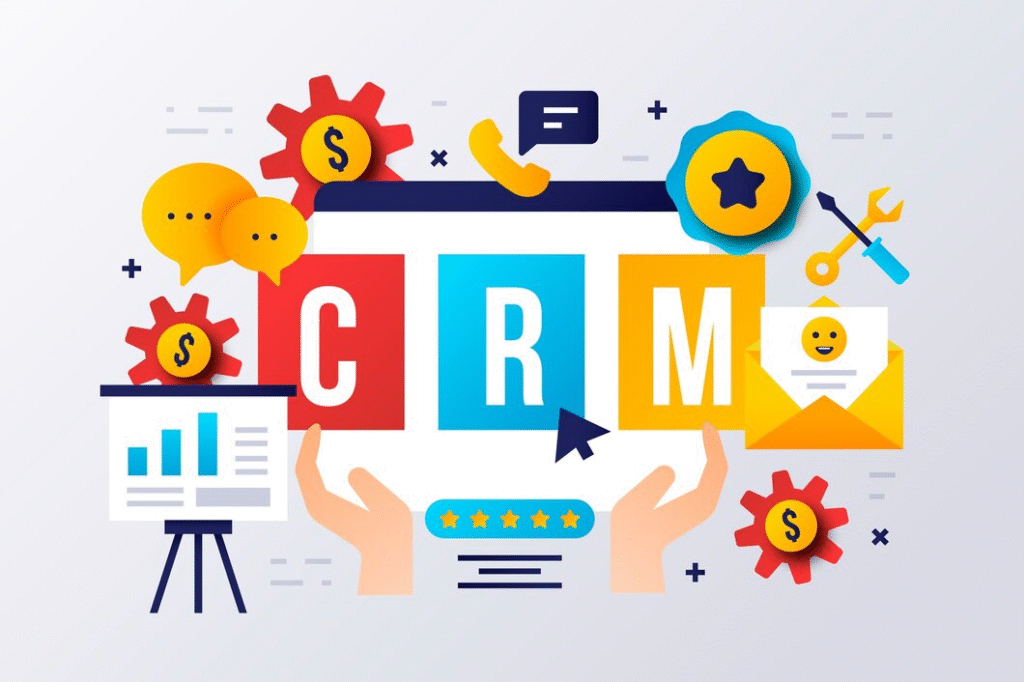Running a small business comes with a lot of responsibilities. From managing finances and employees to handling customer relationships and operations, it can quickly become overwhelming. As a small business owner, I’ve experienced firsthand how the right software can transform daily tasks, increase efficiency, and help grow your business.
In this guide, I’ll walk you through the best small business management software available today, explain their features, and help you choose the one that fits your business needs. By the end of this post, you’ll have clear insight into software that can truly make your business more productive.

Why the Right Small Business Software Matters
Selecting the right management software is not just about having a tool—it’s about creating a foundation for growth. The right software:
- Automates repetitive tasks, saving time.
- Tracks key performance metrics to improve decision-making.
- Helps manage team collaboration and communication.
- Enhances customer relationship management for better service.
Think of software as an extension of your business. Just like hiring a skilled employee, the right software works consistently, accurately, and reliably.
Key Features in Small Business Management Software
When evaluating small business management software, consider these essential features:

1. Accounting and Finance Management
Financial management is the backbone of every business. The best software will provide tools to:
- Track income and expenses automatically.
- Generate professional invoices.
- Monitor cash flow and create financial reports.
- Integrate with banks and payment systems.
Some small business owners I’ve worked with found this feature alone saved them hours each week.
2. Customer Relationship Management (CRM)
Understanding your customers is key to long-term growth. A strong CRM module can:
- Track customer interactions and preferences.
- Manage leads and follow-ups efficiently.
- Send automated reminders for renewals or promotions.
This builds trust with customers and strengthens relationships, which is essential for repeat business.

3. Project and Task Management
Managing projects, deadlines, and teams can be challenging. Look for software that allows you to:
- Assign tasks to team members with clear deadlines.
- Track progress through dashboards.
- Collaborate in real-time with internal teams.
Effective project management keeps your business organized and reduces errors.

4. Inventory and Supply Chain Management
If your small business deals with products, inventory management is crucial. Good software will:
- Track stock levels in real-time.
- Automate reordering to prevent shortages.
- Generate reports to understand sales trends.
This ensures you always meet customer demand without overstocking.
5. Reporting and Analytics
Data-driven decisions are more reliable than guesswork. The best software offers:
- Detailed business reports and dashboards.
- Insights into sales, marketing, and operations.
- Forecasting tools to plan for growth.
These insights help small business owners make informed decisions and improve efficiency.
Best Small Business Management Software Options
Here’s a selection of highly recommended tools, based on my experience working with small businesses:
QuickBooks Online
QuickBooks is a trusted accounting and finance management tool for small businesses. It offers:
- Automated expense tracking.
- Payroll and tax filing integration.
- Customizable invoices.
Why it’s recommended: QuickBooks simplifies financial tasks, even for business owners with limited accounting experience.
Zoho One
Zoho One provides a complete suite of business management tools:
- CRM, HR, finance, and project management in one platform.
- Mobile-friendly interface for on-the-go management.
- Affordable pricing for small businesses.
Why it’s recommended: It’s an all-in-one solution, reducing the need for multiple subscriptions.
Trello or Asana
For task and project management, Trello and Asana are excellent:
- Visual boards and task lists to track projects.
- Team collaboration features.
- Integrates with other tools like Slack and Google Workspace.
Why it’s recommended: Perfect for small teams looking to stay organized and efficient.
HubSpot CRM
HubSpot CRM focuses on customer relationship management:
- Free and scalable for small businesses.
- Tracks leads, sales, and interactions.
- Offers email marketing and automation.
Why it’s recommended: Builds stronger customer relationships without complexity.
How to Choose the Right Software for Your Business
Choosing the right software depends on your specific needs. Ask yourself:
- What tasks take the most time in my business?
- Do I need more help with finance, customer management, or project tracking?
- What’s my budget for software?
- Will my team adopt this tool easily?
Start by prioritizing your pain points. Then, evaluate software based on features, usability, and pricing. Always consider free trials to test the software before committing.
Benefits of the Right Small Business Software
When implemented correctly, the right software can transform your business:
- Efficiency: Automates repetitive tasks, freeing up time for growth.
- Accuracy: Reduces human error in finance, inventory, and reporting.
- Customer Satisfaction: Better customer tracking and communication improves service.
- Scalability: Supports growth as your business expands.
Why You Can Trust My Recommendations
I’ve worked with numerous small business owners over the past decade, helping them streamline operations and choose the tools that genuinely work. My goal is to provide honest, practical advice that small business owners can rely on.
As someone who understands the challenges you face, I only recommend software I’ve tested or personally observed driving results. By following these recommendations, you can confidently choose tools that fit your needs.
Conclusion
Finding the best small business management software doesn’t have to be overwhelming. Focus on your business needs, evaluate tools carefully, and implement the solution that makes daily operations easier.
By choosing the right software, you’ll save time, reduce stress, and create a strong foundation for growth. Remember, the best software is the one that supports your business goals, not just the one with the most features.




